Alms Procession and Offering to the 16 Arhats
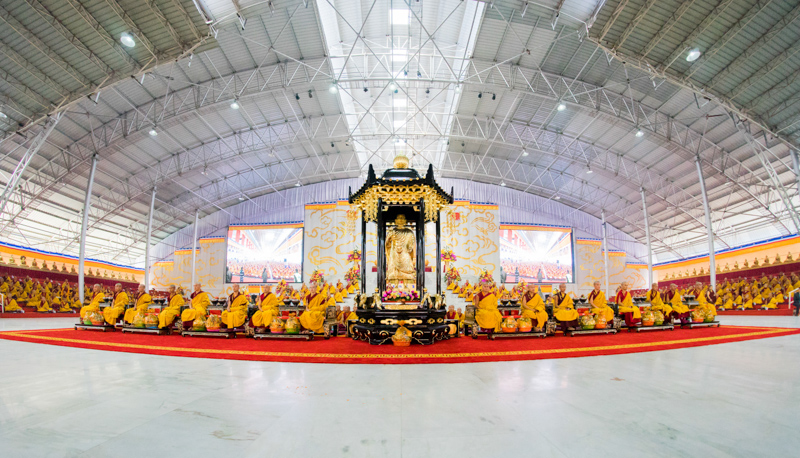
The procession of the Sixteen Arhats took place in the morning on the sixth day of the Kagyu Monlam. Seats for the Sixteen Arhats were laid out on the main stage, where a black pagoda shrine occupied the centre ground.
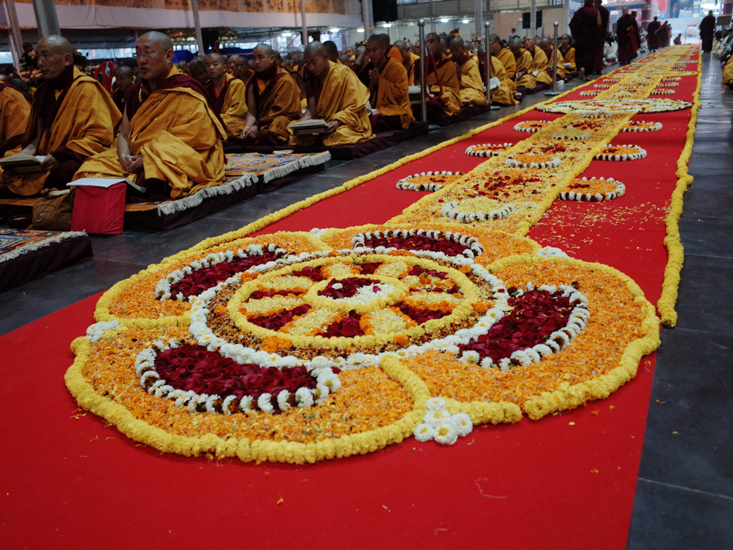
In the morning, Mönlam participants arrived to find the Pavilion transformed.
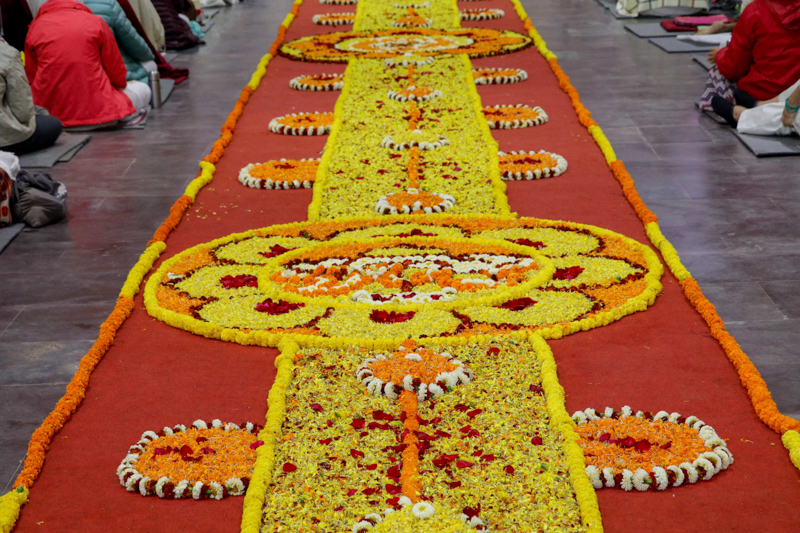
The Pavilion's central aisle had become an elaborate carpet of flowers.
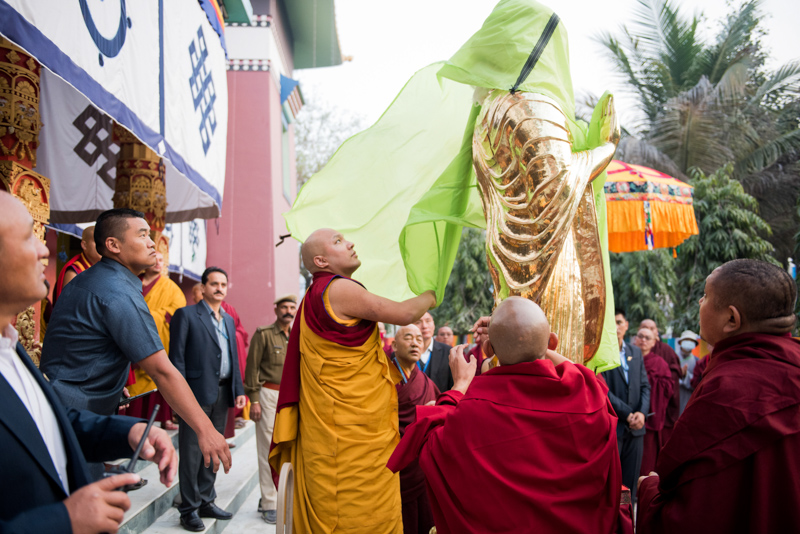
This spectacular golden statue of the Buddha would be placed inside the pagoda shrine in the Pavilion.
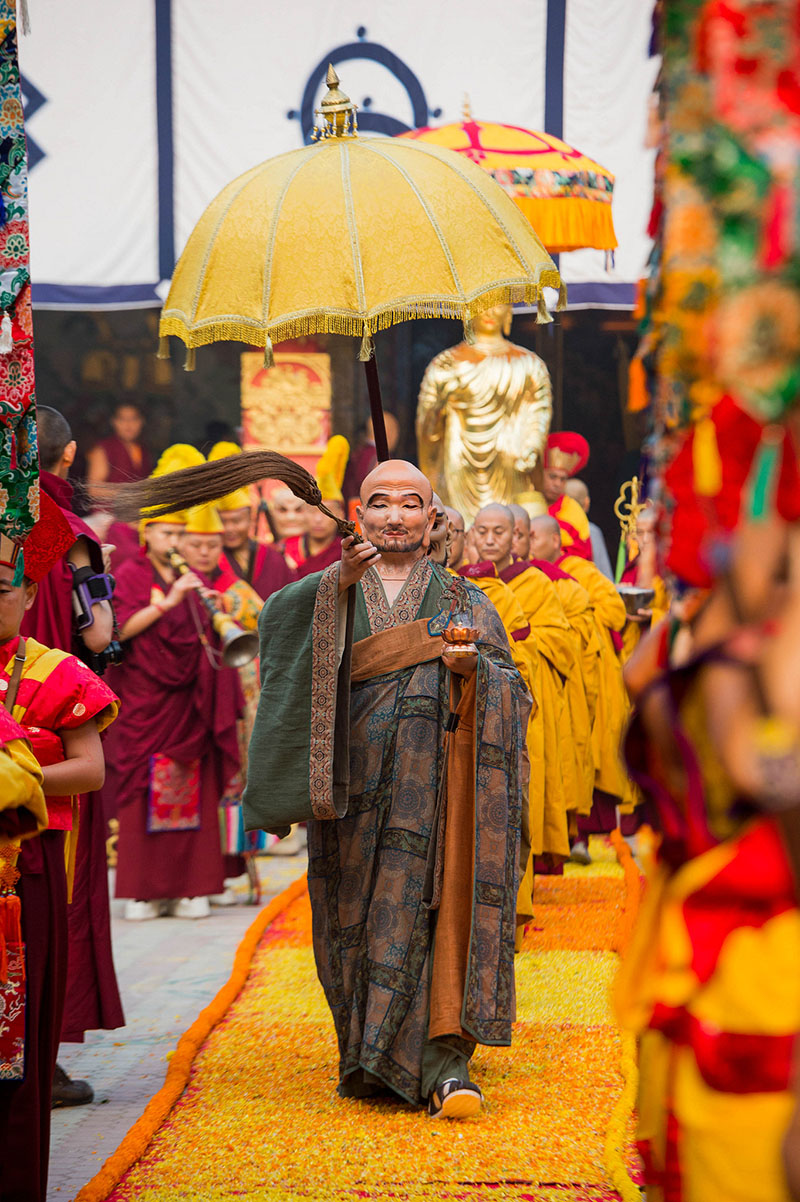
A red carpet walkway strewn with orange and yellow petals was specially prepared for the procession.
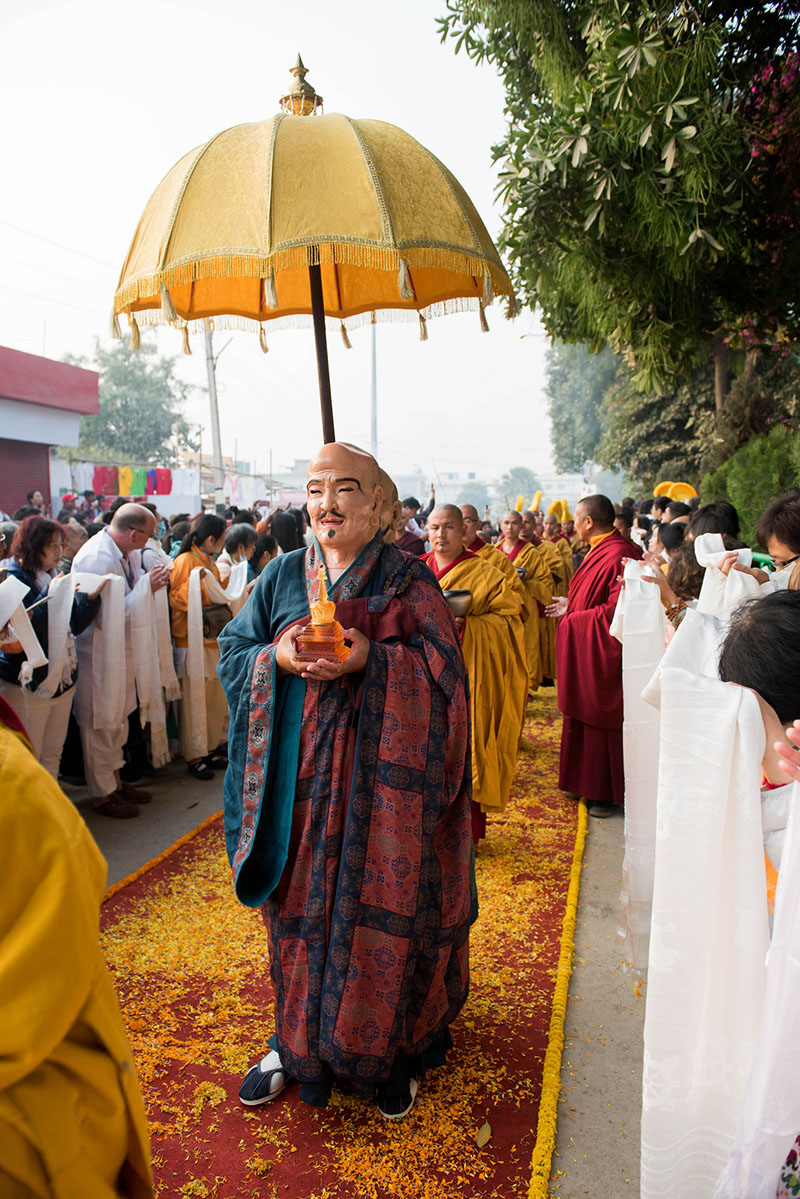
Under each parasol was one of the Sixteen Arhats in a mask and costume, holding one of the attributes described in the Prostrations and Offerings to the Sixteen Elders.
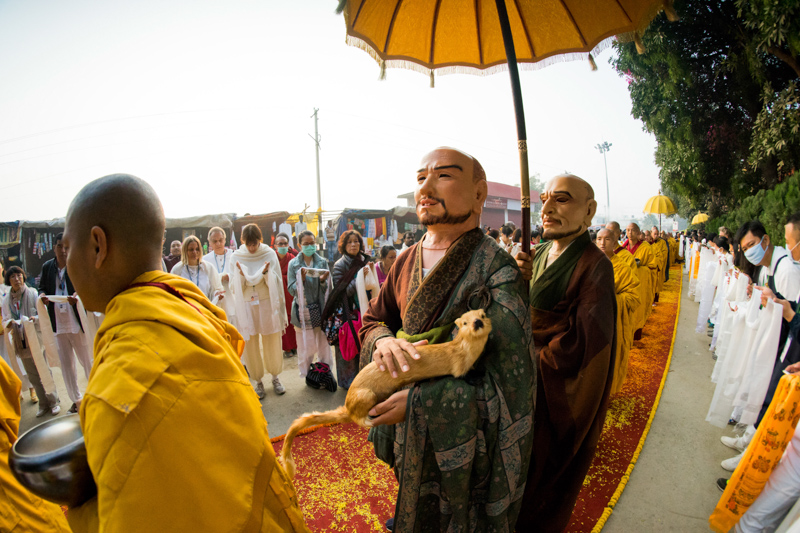
Each Arhat was accompanied by an attendant similar in character carrying the parasol. Behind the Arhats came groups of monks with alms bowls.
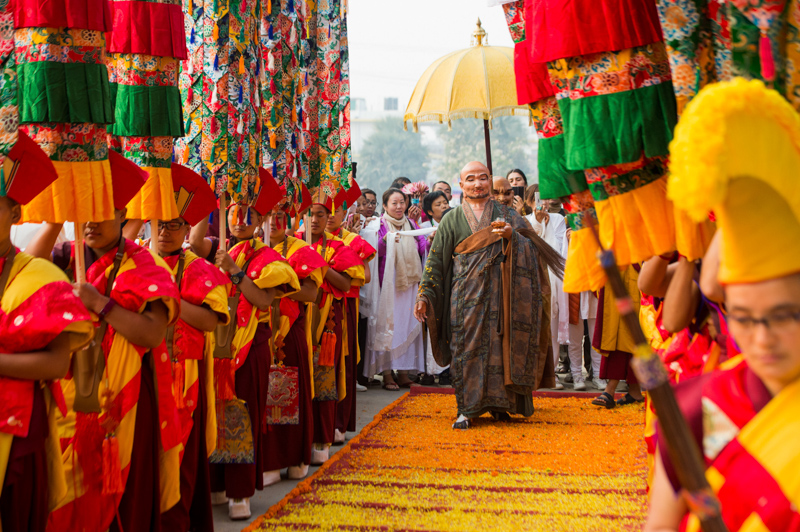
Victory banners and parasols led the procession from Tergar Monastery to the Monlam Pavilion.
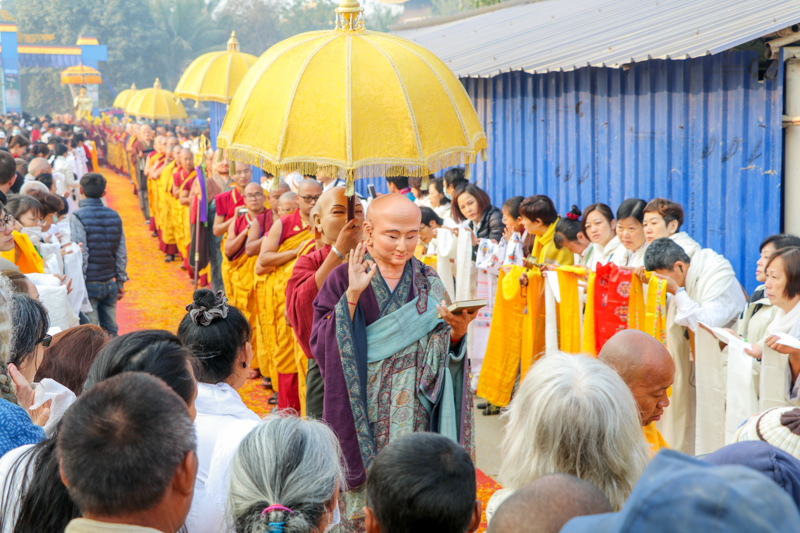
Mönlam Members were lined up to frame the procession, and all participants would have an opportunity to make an offering.
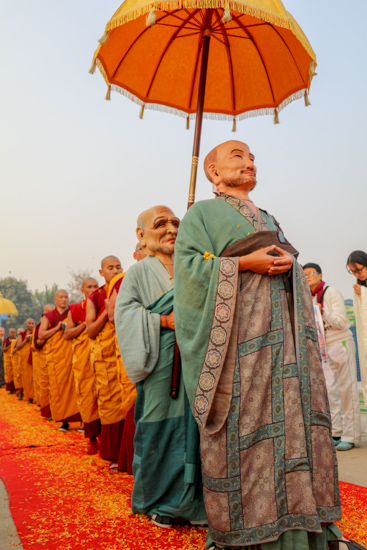
The Arhat's costumes were new this year, created by a famous Hong Kong costume designer.
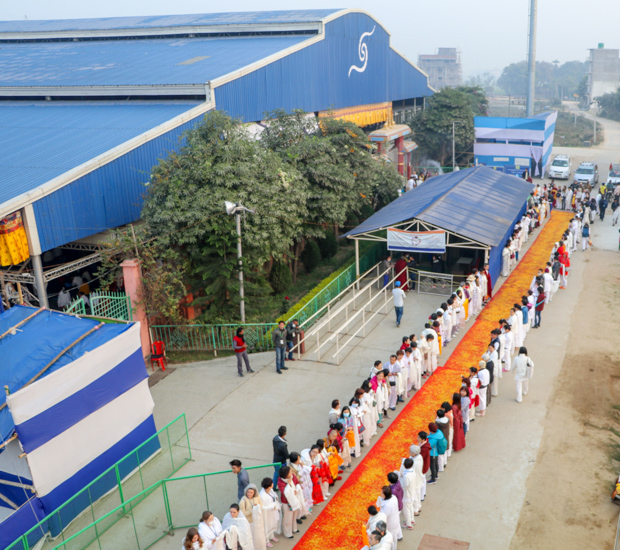
Devotees near the Pavilion eagerly awaited the Arhat procession, which had originated from Tergar Monastery.
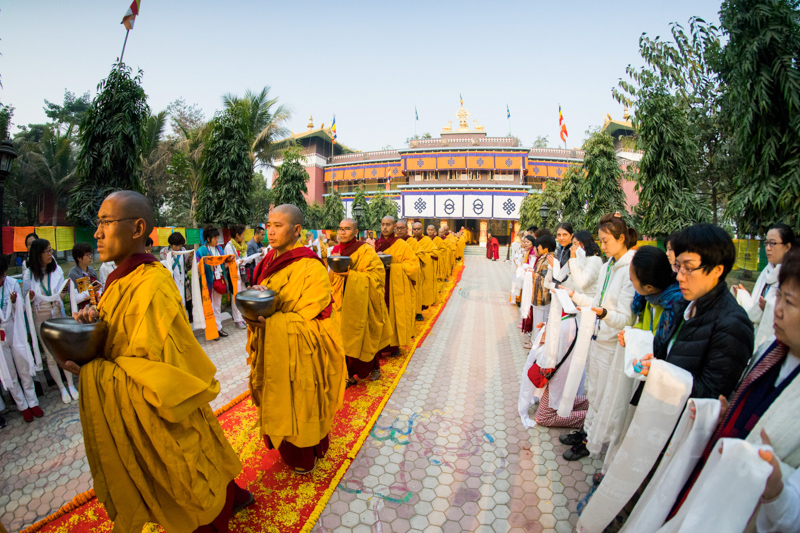
Monks with their begging bowls bring up the rear of the procession.
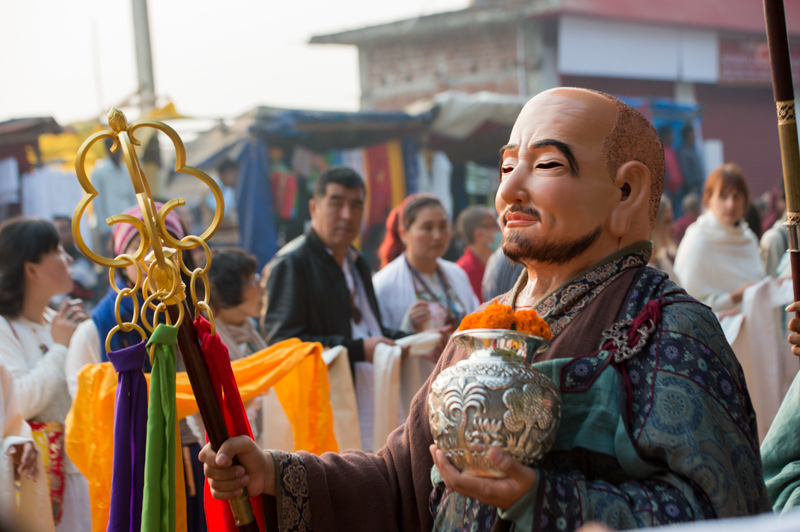
This Arhat proudly holds his attributes, in this case a ringing staff and vase.
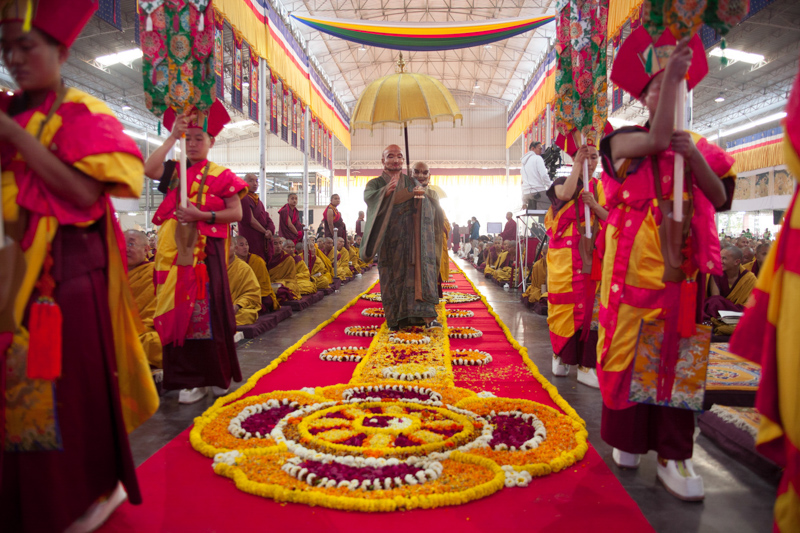
The head of the procession entered the Pavilion to the sound of music, his measured steps barely disturbing the carpet of flowers underfoot.
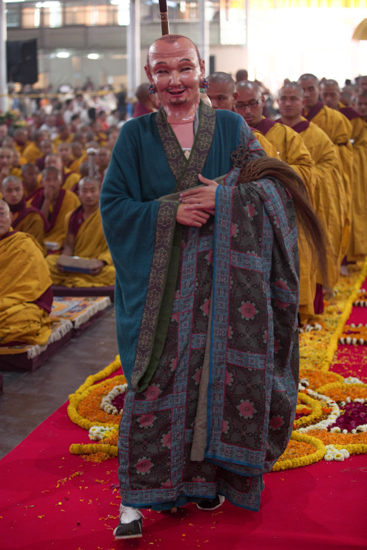
The Arhats and monks advance slowly towards the stage.
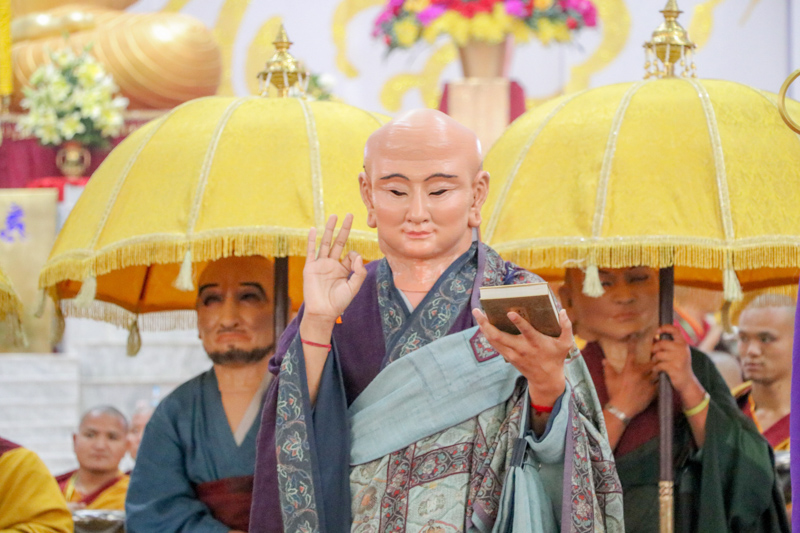
Once on the stage, the Arhats displayed their mudras and attributes and in this way bless the spectators.
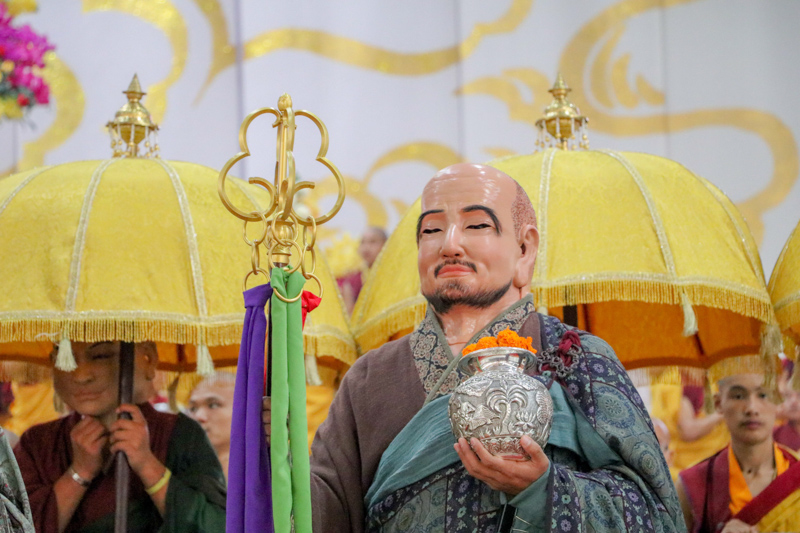
The masks were also new this year; they were created by a Chinese artist based on an artwork by the 17th Gyalwang Karmapa.
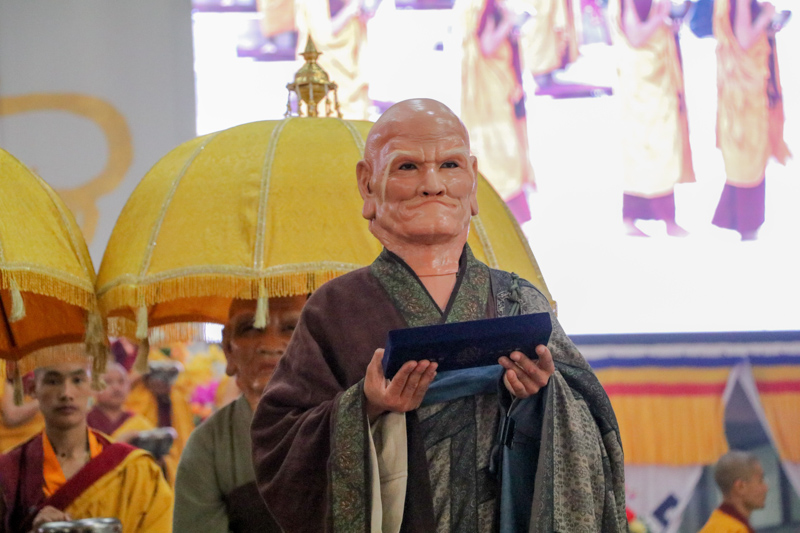
The mask-maker captured the unique features and facial expressions of each Arhat, just as they appeared in the Karmapa's drawing.
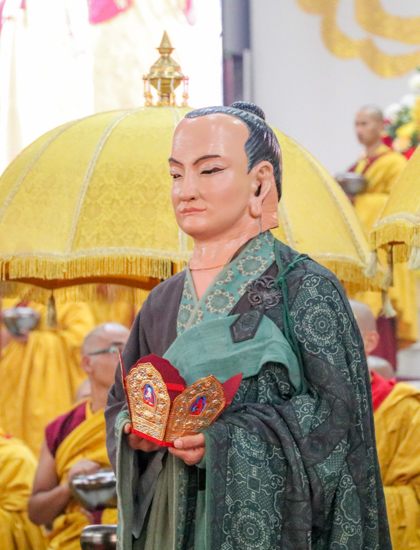
This Arhat holds a crown.
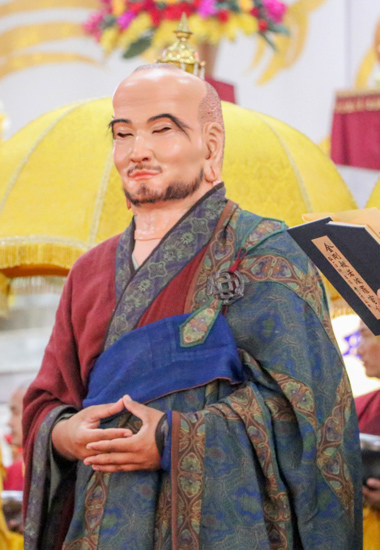
This Arhat is deep in meditative equipoise.
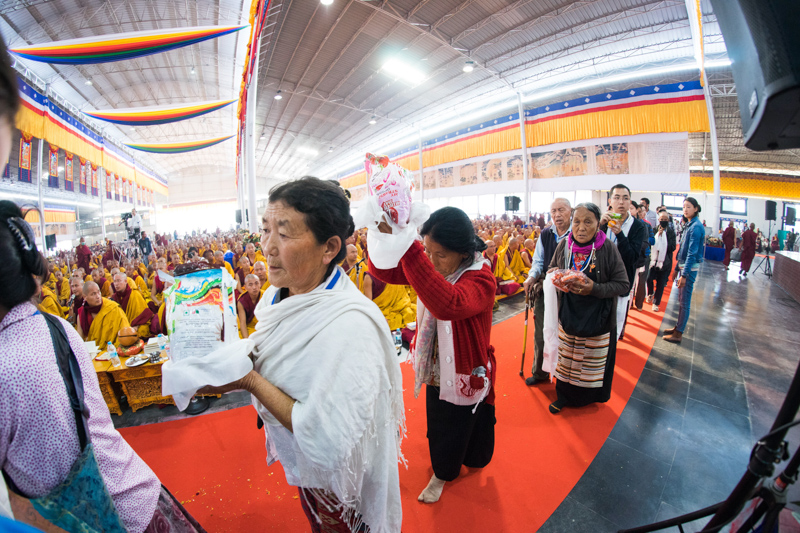
The lay devotees are finally able to make their offerings; they will accrue much merit by this simple act of faith.
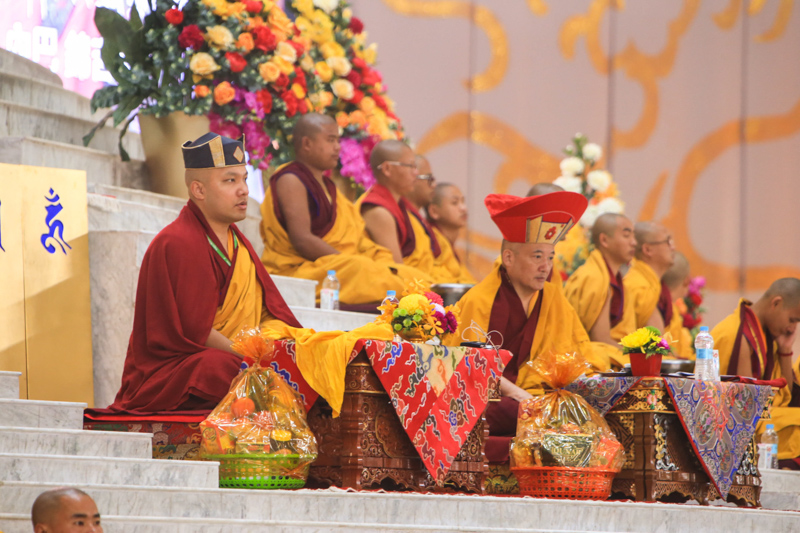
The 17th Gyalwang Karmapa and His Eminence Goshir Gyaltsab Rinpoche presided over the entire event.
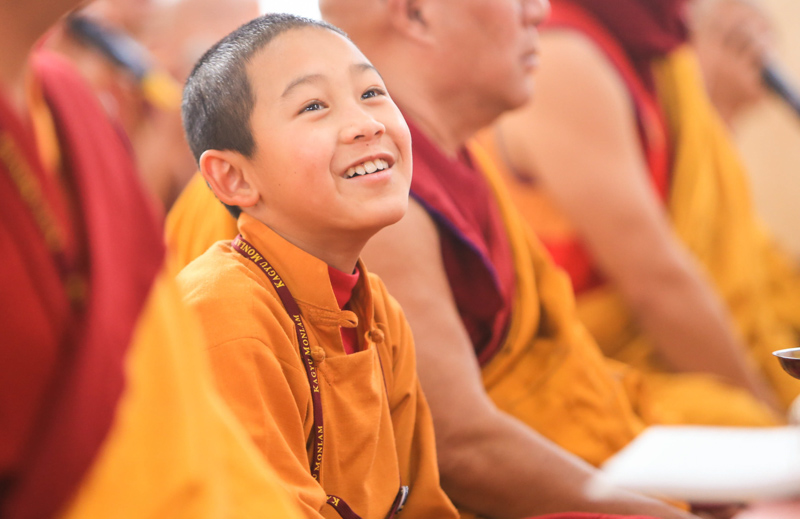
Yangsi Bokar Rinpoche gazes at the spectacle with delighted rapture.
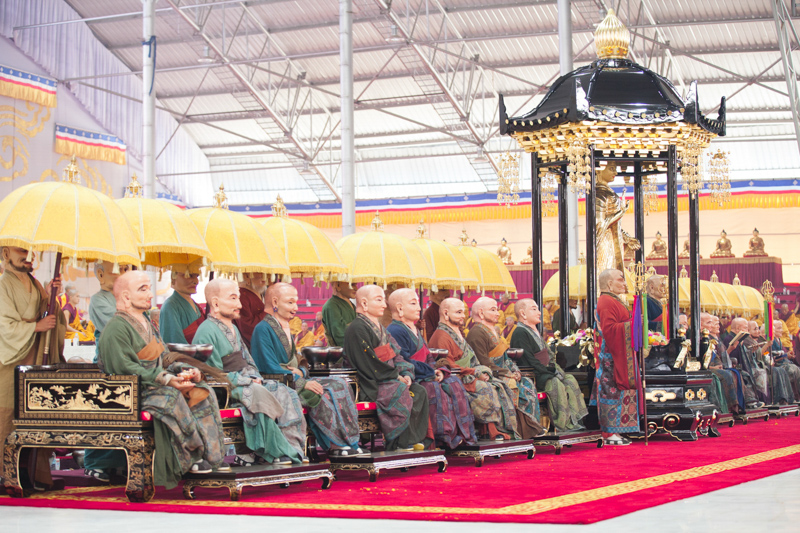
The Arhats took their seats on either side of the Buddha statue ensconced in the elaborate black pagoda.
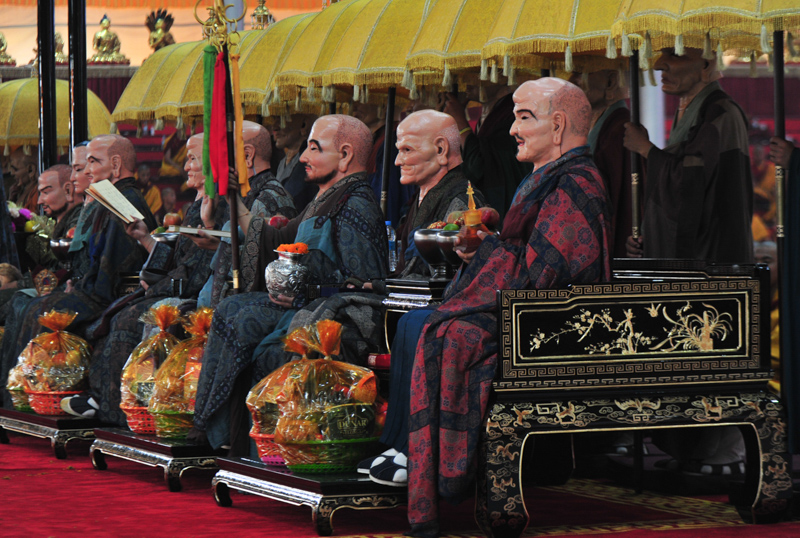
Laden baskets of fruit were placed next to each of the Arhats.
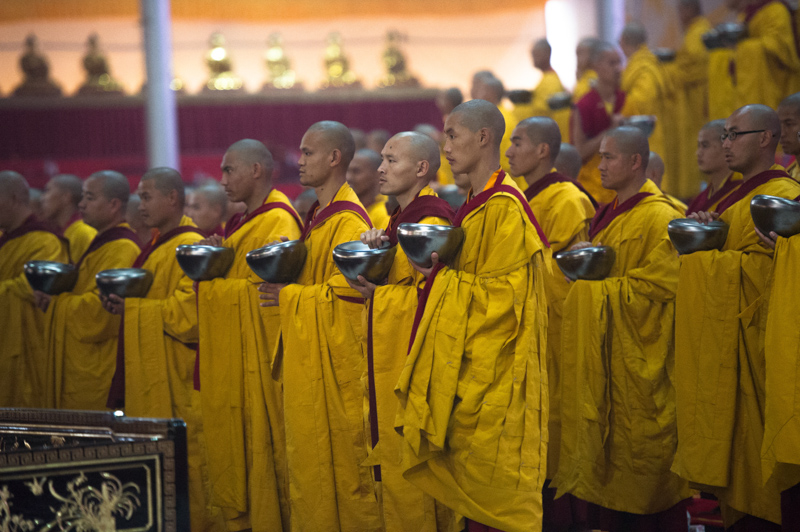
Gelongs with their begging bowls give a taste of what the Buddha's retinue of Bhikkshus may have looked in ancient times.
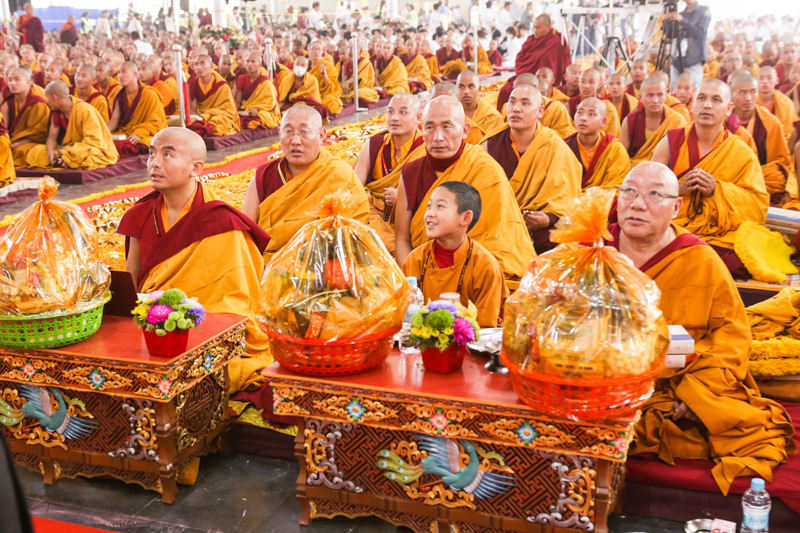
The Rinpoches and monks gaze upon the event with eager interest.
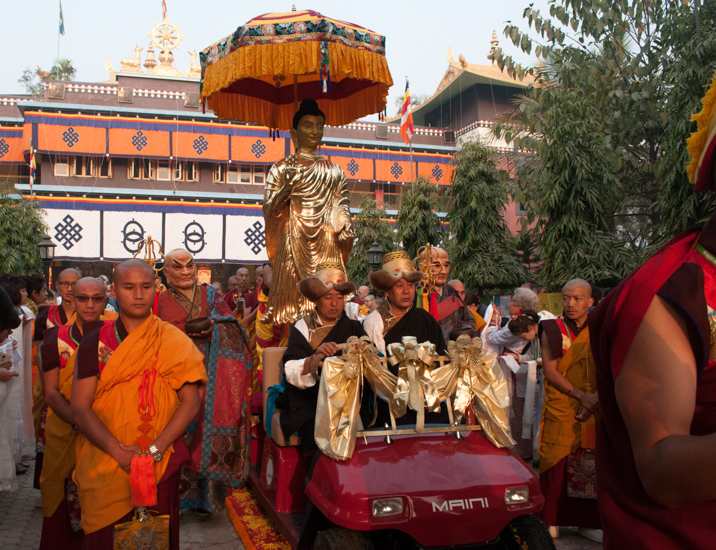
The Buddha statue had been moved from Tergar to the Pavilion with great care and ceremony.
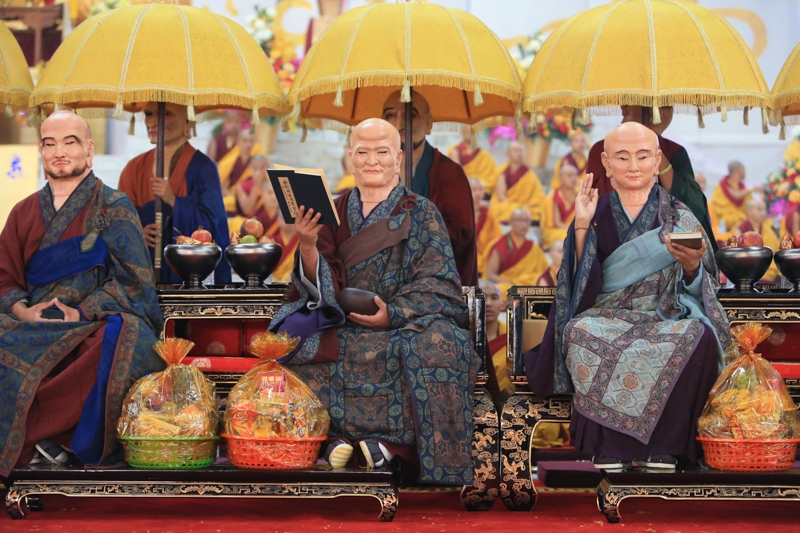
Displaying nobility and dignity, the Arhats display their mudras for the benefit of all.
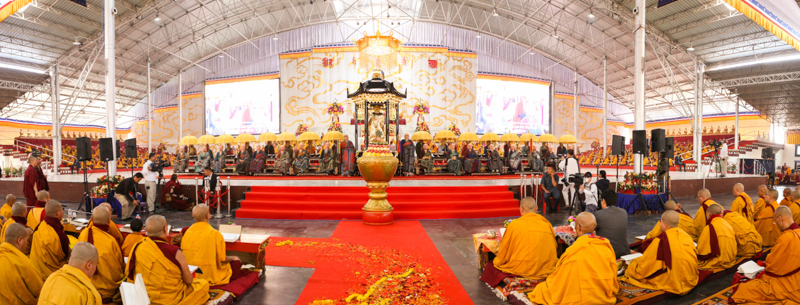
A giant golden bowl overflowing with piled fruits adds an elegant touch.
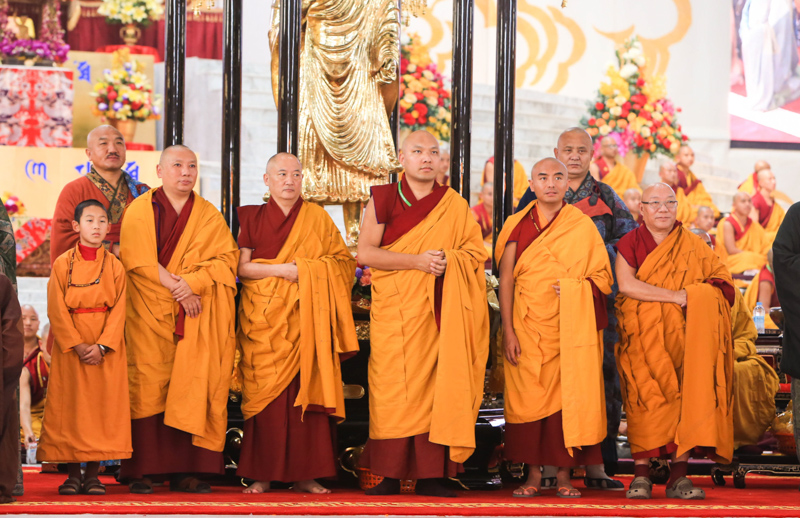
Finally, a group portrait was taken in honor of this spectacular event. From left to right: Yangsi Bokar Rinpoche, Zurmang Gharwang Rinpoche, H.E. Goshir Gyaltsab Rinpoche, the 17th Gyalwang Karmapa Ogyen Trinley Dorje, Venerable Mingyur Rinpoche, and Khenpo Donyo Rinpoche.

































































